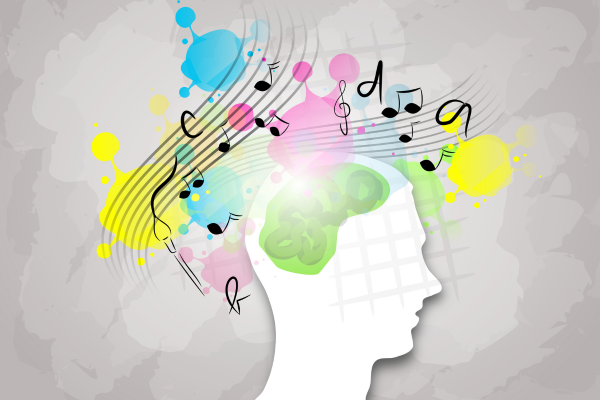Music is a universal language that cuts across boundaries. It transcends societal divides, cultural differences, and even time itself. Music gives us access to the minds of artists who have long passed on, and it can also transform the way we perceive time in our own lives. Does a certain song spark a particular memory for you? Have you felt time appear to slow as you listen to a favorite piece and lose yourself in your thoughts? If so, you already have an inkling of the ways music can affect our memory and concentration.
From triggering nostalgic recollections to aiding individuals suffering from dementia, music has shown remarkable potential. Music can also play a role in boosting focus and concentration, notably in environments demanding high cognitive involvement. In this blog, we’ll explore these fascinating intersections between music, memory, and focus.

Music and Memory
Music and memory have a deep-seated connection. Songs and melodies can serve as auditory post-it notes, helping us remember significant events or information. To understand why, we need to delve into the neuroscience behind it.
Music engages various areas of the brain, including those associated with memory and emotion, like the hippocampus and the prefrontal cortex. Studies have shown that “music doesn’t just help us retrieve stored memories, it also helps us lay down new ones.” A tune connected to an event or information forms a kind of soundtrack, which, when replayed, can spark a recollection.
This phenomenon has seen application in helping dementia patients. Memory loss is a significant symptom of dementia, affecting a person’s ability to recall past events or learn new information. Remarkably, music therapy has emerged as a valuable tool to prompt recall among these individuals.
Researchers have discovered that dementia patients often retain musical memory, even when other forms of memory are significantly impaired. Music from a patient’s past can often unlock forgotten memories. It’s not a cure, but it’s an invaluable tool in the therapeutic arsenal, enhancing the quality of life for those living with dementia.
Music and Concentration
Music doesn’t just help with memory; it also impacts our ability to focus. The secret lies in the type of music and how we use it.
Music with a slow tempo, lacking lyrics, and exhibiting a repetitive or ambient nature can improve concentration and promote a state of calm focus. This type of music minimizes distraction, helps maintain a consistent work pace, and can even make tasks more enjoyable.
The “Mozart Effect,” a popular term in this context, refers to the belief that listening to Mozart’s music can improve mental performance. Though the extent of this effect has been debated, what’s undeniable is the positive impact of certain types of music on our cognitive functions.
The Best Music for Concentration and Focus
So, what music genres or types are best for concentration and focus? While certain musical elements are better for focus (such as a lack of lyrics, which may distract you), the best focus music for you will be heavily dependent on your own preferences and work style. Experiment with different types of music to see which ones are most impactful for you. Here are a few suggestions to get started:
- Classical music: Baroque classical music, like pieces from Bach or Handel, may improve accuracy and speed when performing tasks that require concentration.
- Nature sounds: The sounds of flowing water, birds chirping, or leaves rustling can have a soothing effect, promoting concentration and reducing stress.
- Ambient and electronic music: With minimal lyrics and a steady beat, this type of music can help create a rhythm for work.
- Binaural beats: These sounds are said to induce the same mental state associated with meditation, making them an excellent choice for deep focus.
Music’s relationship with our cognitive functions is a rich and exciting area of study, revealing music’s potential to enhance our memory recall and aid in focus and concentration. Whether you’re studying for an exam, working on a project, or simply reflecting on good memories, consider tuning into the powerful influence of music.
If you’re interested in learning how to move people with your music, check out our composition course, or any of our wide range of music lessons for all ages! We offer outstanding music instruction and programs to students of all ages, interests, and skill levels at five campuses in the DC area. At each Levine campus, our students find a diverse range of musical activities, a supportive environment, and dedicated teachers to challenge their creative limits and to guide them. We also offer online learning!
Our music therapy program serves individuals of all ages and needs at each Levine campus and in the community through a variety of partnership programming. From classes focusing on healthy aging for older adults to individual sessions for children focusing on language development, our programming helps forge those powerful therapeutic connections between music, health, and wellbeing.
Here at Levine Music, our core values—excellence and opportunity—infuse everything we do. Learn more about our program areas and upcoming performances, and donate today to help us bring lifelong joy and inspiration through music!
